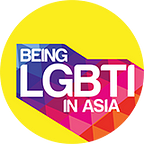Promoting diversity in business: Executive dialogue on LGBTI inclusion
17 January 2017
Ha Noi — A recent study in Viet Nam shows that on average 30 percent of Lesbian, Gay, Bisexual, Transgender and Intersex (LGBTI) respondents reported being denied employment based on sexual orientation and gender identity.
Establishing a network of civil society organizations and business leaders, reviewing the current anti-discrimination laws, and examining benchmarking standards, such as a workplace equality index, were among the recommendations to promote diversity in business, made at the “Executive Dialogue: Implementing LGBTI inclusion in Asia” held in Ha Noi on 17 January.
The UN Development Programme (UNDP) and The Economist cohosted this dialogue, bringing together business, government and civil society.
“LGBTI discrimination in business practices remains an important issue in Viet Nam,” said Louise Chamberlain, UNDP Country Director in Viet Nam, in her opening speech. “The rapid economic development that Viet Nam has experienced in recent years must be matched by greater equality and protection for marginalized groups. Policies and practice of inclusion and non-discrimination in the work place send a strong signal around the world that business supports equality”.
LGBTI diversity and inclusion is increasingly becoming a business priority. Eighty-seven percent of Fortune 500 companies now have non-discrimination policies that include sexual orientation as a category for protection. Though companies in Asia may lag behind their western counterparts, many are making important steps in the right direction.
Among the many challenges that forward-thinking corporate chiefs and executives face in creating inclusive workplaces and promoting diversity is the practical implementation of progressive corporate polices. In this roundtable, corporate leaders shared case studies, insights and analysis on how to create a culture of inclusion and diversity across the business.
Participants also identified key priority areas for action, advocacy and collaboration for the private sector, civil society and government to promote inclusion in business. These include working with Trade Unions and employment organizations, and recognizing the ‘champions’ among the business community who are leading in this area. Further ideas included integrating the message and policy of inclusion in startup businesses growing all across Vietnam. The role of civil society in connecting LGBTI individuals to the business community, providing training and mobilizing public support was also highlighted as an area requiring further support. Meanwhile, data remains critically important to support evidence-based advocacy and advance LGBTI inclusion.
Another important message was that LGBTI individuals should not been seen only as potential victims of discrimination but are also agents of change, promoting equality for other marginalized and discriminated against people. By supporting LGBTI equality in business we advocate for inclusion for everyone in the workplace and beyond.
“The rights of all people are enshrined in the Universal Declaration of Human Rights, including the principle of non-discrimination,” Ms. Chamberlain added. “While international human rights treaties do not impose legal obligations on enterprises, businesses have tremendous power and ability to affect the enjoyment of human rights, both positively and negatively.”
UNDP continues to support such efforts by businesses, as well as government and civil society, to use corporate influence and power positively, as inclusion and protection of human rights are essential elements to ensure sustainable economic and social development in Vietnam.
This dialogue is part of a series of two intimate and informal roundtable discussions to be held in January 2017 in Viet Nam and the Philippines. The discussion will shape the direction of the conversation at The Economist’s Pride and Prejudice forum, which will be held in New York, London and Hong Kong in March 2017.
For more information, please read:
UNDP speech
UNDP presentation “Being LGBTI in Viet Nam: Recognition and protection of rights
ICS presentation on LGBTI Inclusion in business in Viet Nam
Visit Being LGBTI in Asia site
Watch this video “Embrace: the power of being an ally”
Originally published at www.vn.undp.org on January 17, 2017.
